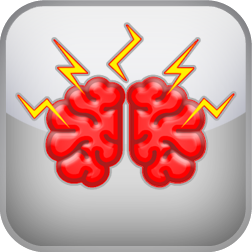Psychopathy Matrix Test
You are here because one of your friends linked you to their Psychopathy Matrix Test result:
Take the TestResults:

Your friend's psychopathic personality traits are low (31.88%).
Take the TestExplanation of Traits:
Machiavellian Egocentricity: People who are high in Machiavellian egocentricity lack empathy and have a sense of detachment from others. Their disinterest in genuine mutuality often allows them an edge with regard to achieving their own goals. Such people tend to be manipulative, self-centered, and aggressive in their interpersonal relationships. For instance, they may lie strategically, gleefully set up competitors or enemies to get them into trouble, or tell people only the part of the truth that they want them to know. Such people may also sometimes lie just to see if they can get others to believe them, and they often believe that they are more important than other people.
Social Potency: Individuals with high social potency have the ability to charm and influence others. They tend to be friendly, appealing, popular, and confident. For instance, they often know how to make themselves stand out favorably in a crowd and usually feel comfortable talking to strangers or charming their way into their good graces. Such people tend to come across as sure of themselves and exciting to be around. Bestowing a sense of something special in social interactions, they can easily ask favors of others and win people over through their charisma.
Cold-heartedness: People high in cold-heartedness have a distinct lack of emotion, guilt, or regard for others’ feelings. They are callous, as they tend to have a non-sentimental cognitive style. Their lack of concern for the welfare of others may make them appear cruel and merciless. Indeed, such people are often not emotionally affected when their family or friends have problems, and they do not tend to get upset when other people are suffering. Finally, cold-hearted people often do not feel bad, even when they’ve done something that they know was wrong.
Carefree Non-planfulness: Individuals with psychopathic traits often have difficulty planning ahead and considering the consequences of their actions, yet they seem to be okay with this. Since forethought is not prevalent in such people, they often find themselves in unfavorable circumstances. For instance, they may often repeat aberrant behaviors that previously got them into trouble, or they may overlook important details or duties, thinking little about the impact that their neglect will have. Furthermore, such people tend not to meet their obligations the way they should because of their impulsive decisions.
Fearlessness: Characteristics of psychopathy include the psychopath’s eagerness for risk-seeking activities and the lack of fear that goes with such a disposition. Some psychologists theorize that this is due to an impairment of the limbic system or the person’s atypical limbic responses. People who are high in fearlessness often do dangerous things on a dare, do not feel nervous when confronted with danger, and can enjoy scary and thrilling situations where others are frightened. Moreover, such people often have reduced responses when confronted with distressing images or events. Fearlessness is also related to being coldhearted since it is easier to engage in cruel actions without feelings of fear.
Blame Externalization: Individuals with psychopathic tendencies often do not take responsibility for their actions, so they blame others or excuse their bad behavior by rationalizing it away. Such people tend to project their negative internal characteristics onto the outside world and other people. Hence, they usually think that the uncomfortable situations in their lives are somebody else’s fault. As a consequence, people high in this trait often believe that others purposefully betray them; that they are victims of unfortunate events, they’ve been unfairly judged, and the people who should be helping them secretly want to see them fail.
Rebellious Nonconformity: People with psychopathic traits often disregard social norms and diverge from culturally acceptable behaviors. They tend to go against society’s conventions and regulations — challenging authority and breaking the rules that hamper them or get in the way of what they want. People high in this trait typically “make their own rules” as they go along and do not care about commonly accepted standards of right and wrong.
Stress Immunity: Individuals with psychopathic personalities tend to be deficient in typical reactions to traumatic or stress-inducing situations. This is related to the presumption that low anxiety is a feature of psychopathy; that, indeed, lack of nervousness is closely related to being a cool manipulator and to the callous behavior exhibited by psychopaths. As such, people with high stress immunity tend to remain calm and function rather well under pressure; they do not worry overmuch about risk and do not let fear hold them back.
References
- Benning, Stephen D. (2016). "Psychopathic Personality Inventory (PPI)." Encyclopedia of Personality and Individual Differences. pp. 1–4. doi:10.1007/978-3-319-28099-8_1098-1
- Gao, Y., & Raine, A. D. (2010). Successful and unsuccessful psychopaths: A neurobiological model. Behavioral Sciences and the Law, 28(2), 194-210.
- Hare, R. D. (2003). The Hare Psychopathy Checklist-Revised Manual. Toronto, Canada: Multi-Health Systems.
- Lilienfeld, Scott O.; Andrews, Brian P. (June 1996). "Development and Preliminary Validation of a Self-Report Measure of Psychopathic Personality Traits in Noncriminal Population." Journal of Personality Assessment. 66 (3).
- Sandoval, Ann-Marie & Hancock, Danyel & Poythress, Norman & Edens, John & Lilienfeld, Scott. (2000). Construct Validity of the Psychopathic Personality Inventory in a Correctional Sample. Journal of personality assessment.
Take Next
GET THE FULL STORY
Become a lifetime member with a one-time payment
WHAT YOU GET
Access to members-only tests
Ability to track and save test results
Access to all of our eBooks (value $44.94)
Access to premium type assessments and infographics
Become a memberGET THE FULL STORY
Manual of Personality Styles
WHAT YOU GET
71-page manual, explaining the make-up of all personality styles, their hidden drives, and the theory behind the system.
Presented in an easy-to-read style and backed up by solid academic references.
14-day, no-questions-asked, money-back guarantee.
Order NowSave and monitor your results over time
Become a member today
Sign Up












